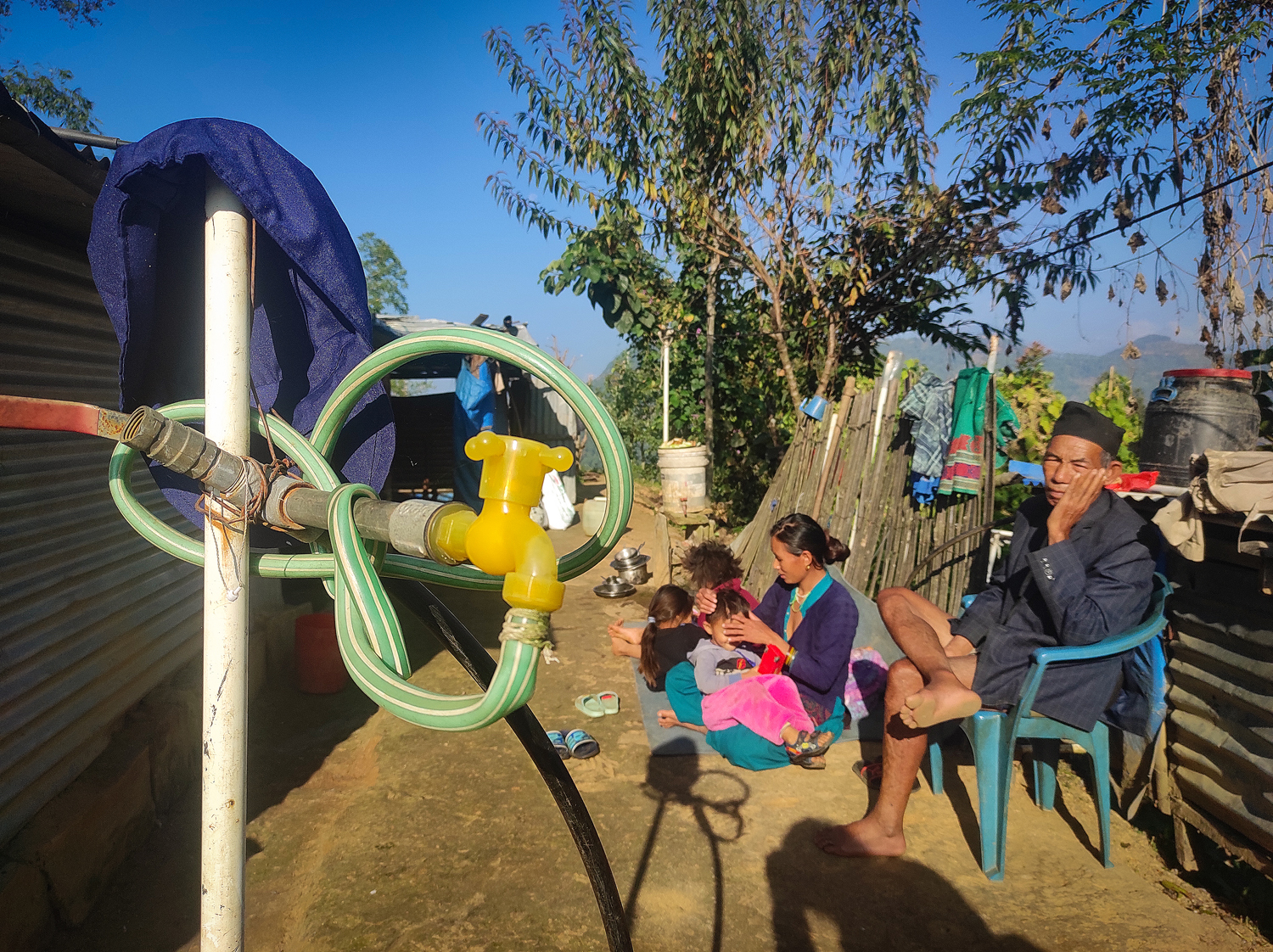Dejected voters reject polls

Chinimaya Lama, 30, cannot walk up the slope to fetch water for her livestock. Her lower abdomen hurts and she has difficulty sitting down. At home she looks after her husband and five children.
She went to a health post six months ago, but the staff there did not even have painkillers. Lama has a uterine problem and cannot afford to go to a city hospital to have it treated.
Every few years at election time, political leaders campaigning house-to-house come by to the village of Syaule promising to upgrade its health post. This year, too, the candidates have trooped in, but residents of this scenic village with 52 households have heard it all before.
Lama’s neighbours Pemsang, Rammaya, Dilmaya and Kanchi Tamang all have uterine problems like her, caused by multiple pregnancies, hard work in the fields and poor nutrition. None of them have access to diagnosis or treatment.
“Candidates asking for votes would have got a much better response if they had also come up with health camps for women and brought medicines for us,” adds Lama, bundling grass for her cows.

As in other parts of rural Nepal, there is little excitement about the 20 November elections in Syaule, which is a 4 hour drive northeast of Kathmandu. There is a look of quiet dejection and much grimacing, when residents are asked if they will vote.
“From before I was born, we have faced lack of water, proper medical care and joblessness. When these candidates come asking for votes, I just get furious,” says Wakab Tamang, 80, scowling through his wrinkles.
Read also: Depending on independents, Shristi Karki



Syaule villagers have therefore collectively decided to boycott the 20 November elections. Says Chinimaya Lama: “I would rather go to my daily job and earn a few hundred rupees to buy food for my children instead of wasting my time voting for leaders who do nothing for us.”
Residents of the adjacent village of Sanghachok have also decided not to vote. Mishri Lama, too, has faced water scarcity for three generations.
“They tell us we will get water but it is only because the election is here and they want our votes,” says Lama. “They act as if we are family at election time, and then abandon us. No, we are not voting.”

Springs going dry due to over-extraction and climate change is a problem across Nepal’s mid-mountains, but is especially acute in ridge-top settlements like Syaule and Sanghachok.
Dhan Bahadur Tamang spent thousands of rupees to fit a tap a few years ago, only to find that the spring had gone dry. No politician came to help. “I won’t even open the door for these candidates when they come by, I’m sick of them,” he adds.
Last year’s monsoon floods destroyed the main road from Chautara, and there has been an effort to repair the landslides which children have to make a dangerous traverse every day on their way to school and back.
“For me the word politician is synonymous with inaction,” says Mishri Lama.

Pema Rinchi Sherpa had actively campaigned in the 2017 election for Mohan Bahadur Basnet who is now contesting from Sindhupalchok-2, but after repeatedly being denied a meeting with the man to discuss road and water issues, he has learned his lesson.
“I won’t be voting for these leaders who just want power in Kathmandu,” he says. Basnet is contesting again from the governing coalition against Sher Bahadur Tamang of the opposition UML.
In the village of Dumre between Sun Kosi and Indrawati rivers, many residents do not have land ownership rights despite having lived here for generations owing to a random border division three decades ago.
People here have homes in Sindhupalchok but many got their citizenship from Kavre. Two brothers from the same family have to go to different constituencies in different districts to cast their votes.
“We have been living here from the time of our forefathers but we have fallen between the cracks,” says Khadga Bahadur Pahari (pictured below). “It does not matter how many times we voted in the past, no one has ever heard us. So we won’t vote at all this time.”

Dumre is home to 60 Majhi fisher families who have lost their livelihoods because of an illegal sand and boulder mining operation owned by a businessman with political patronage. They too are not going to bother voting this time.
Masali Majhi cannot fish anymore, and has lost her income because of the ‘crusher’ operation. She says: “What is the point of voting for these people who do not care for us?”
Ward chair Roshan Giri was elected in the local polls in May, and Sunday’s elections are for federal and provincial assemblies. UML candidate Sher Bahadur Tamang says he will resolve the fishing crisis by building a reservoir on the Sun Kosi and stopping illegal sand mining.

But these promises do not impress many locals who are boycotting the polls. They may not know all the candidates, but they know they have not performed in the past. They are punishing their inaction by exercising their right not to vote.
By doing this, they are also rejecting younger candidates and independent hopefuls. Locals do not seem to be very impressed with the choice of alternative candidates either, or much informed.
The governing coalition’s Mohan Basnet says he will amend the law if required if he wins the election. He says: “I will help the fisher people if I am elected. They should give me one more chance.”
But at least in these villages of Sindhupalchok it looks like the residents feel they have already given the candidates one too many chances.
Read also:
Election climate in Nepal, Shilshila Acharya
Battle of ballots, Shristi Karki
writer




